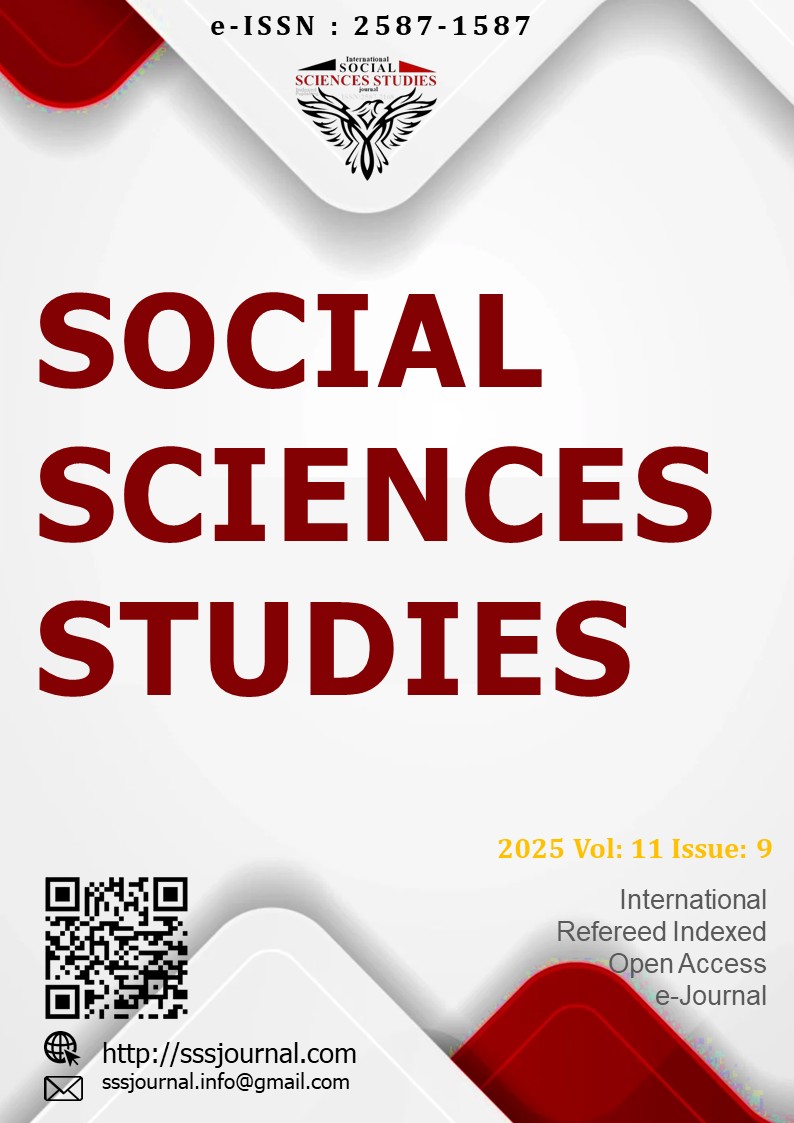Batı Kültürü Algısında “Öteki”ni Okumak: Postkolonyal Yaklaşım Çerçevesinde “Tanrılar Çıldırmış Olmalı” Filminin Göstergebilimsel Analizi
Author :
Abstract
Sinemanın kültürel değerleri yansıtma ve ideolojik söylemleri yeniden üretme gücü, özellikle "Öteki" kavramı bağlamında dikkat çekicidir. "Öteki", egemen kültürün kendisini tanımlarken karşısında konumlandırdığı, farklı, yabancı ya da eksik olarak gördüğü kimlikleri ifade etmektedir. Sinema, "Öteki"leştirme pratiklerini hem görsel anlatım hem de temsiller yoluyla yeniden üretme potansiyeline sahiptir. Bu bağlamda, sinema metinleri postkolonyal kuram çerçevesinde ele alındığında, Batı dışındaki toplumların nasıl temsil edildiği ve bu temsillerin ideolojik arka planı daha görünür hâle gelmektedir. Bu araştırmanın amacı, Batı kültüründe üretilen söylemlerin sinemasal temsiller yoluyla nasıl inşa edildiğini ortaya koymak ve Batı'nın "Öteki"ne yönelik bakış açısını eleştirel bir perspektifle analiz etmektir. Araştırma, "Tanrılar Çıldırmış Olmalı" (1980) filmi örneği üzerinden Batı kültürünün "Öteki"ni algılayış biçimlerini postkolonyal kuram çerçevesinde irdeleyerek göstergebilimsel analiz yöntemiyle incelemektedir. Bu yönüyle araştırma, kültürel temsillerin ideolojik boyutunu çözümlemeyi ve "Öteki"leştirme mekanizmalarının görsel medya yoluyla nasıl yeniden üretildiğini göstermeyi hedeflemektedir. Yapılan analizler sonucunda, filmde içecek şişesi gibi tüketim metalarının Batı kültürünün temsilcisi olan göstergeler biçiminde sunulduğu; Xi karakterinin ise saf, dünyadan haberi olmayan ve ilkel bir figür şeklinde konumlandırıldığı tespit edilmiştir. Söz konusu göstergeler yoluyla Batı'nın kendisini üstün ve merkezde, "Öteki" ni ise eksik ve edilgen olarak konumlandıran yapıda sunulduğu görülmüştür. Bu noktada da ideolojik ve kültürel kodların yeniden üretildiği tespit edilmiştir. Film, yüzeyde kültürel bir karşılaşma anlatısı sunarken, derin yapıda Batı'nın sömürgeci bakış açısını pekiştiren, "Öteki"ni de araçsallaştıran ideolojik bir söyleme dönüşmektedir.
Keywords
Abstract
The power of cinema to reflect culturel values and reproduce ideological discorurses is particularly striking in the context of the concept of the "Other", The "Other" refers to the identities that the dominant culture positions itself against when defining itself and sees as different, foreign or deficient. Cinema has the potential to reproduce the practices of "Othering" through both visual expression and representations. In this context, when cinema texts are analyzed within the framework of postcolonial theory, how non-Western societies are represented and the ideological background of these representations become more visible. The aim of this study is to reveal how discourses produced in Western culture are constructed through cinematic representations and to analyze the Western perspective on the "Other" from a critical perspective. Through the example of the film "Gods Must Be Crazy" (1980), the research examines the ways in which Western culture perceives the "Other" within the framework of postcolonial theory and analyzes it through semiotic analysis. In this respect, the research aims to analyze the ideological dimension of cultural representations and to show how the mechanisms of "Othering" are reproduced through visual media. As a result of the analysis, it was determined that in the film, consumption commodities such as beverage bottles are presented as signifiers representative of Western culture, while the character Xi is positioned as a naive, ignorant and primitive figure. Through these signifiers, it was seen that the West is presented in a structure that positions itself as superior and central, and the "other" as incomplete and passive. At this point, ideological and cultural codes are reproduced. While the film presents a narrative of cultural encounter on the surface, in its deeper structure it turns into an ideological discourse that reinforces the colonialist perspective of the West and instrumentalizes the "Other".





